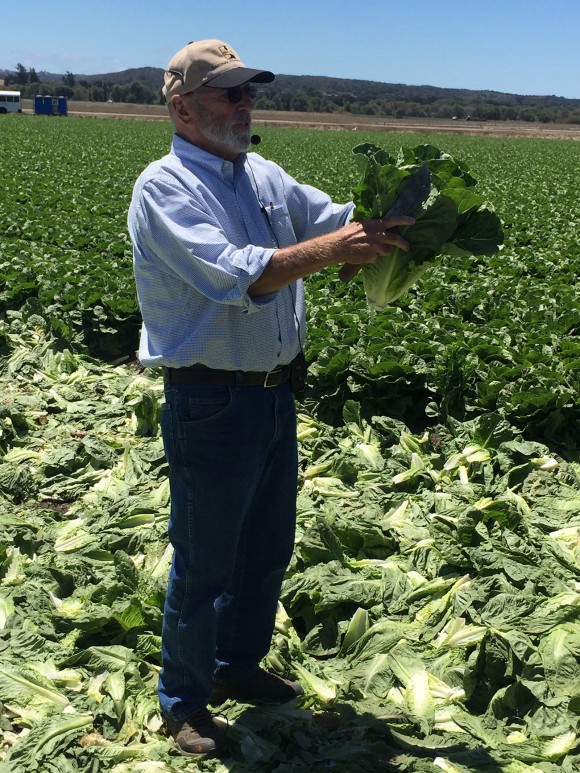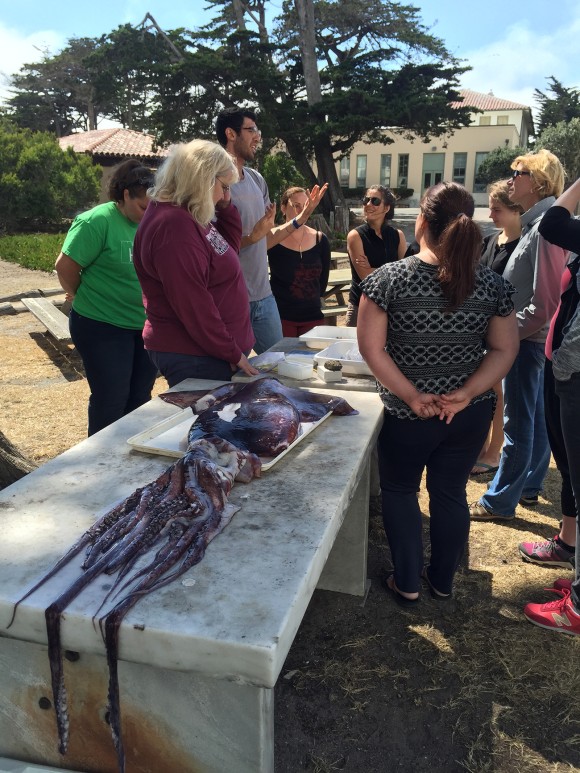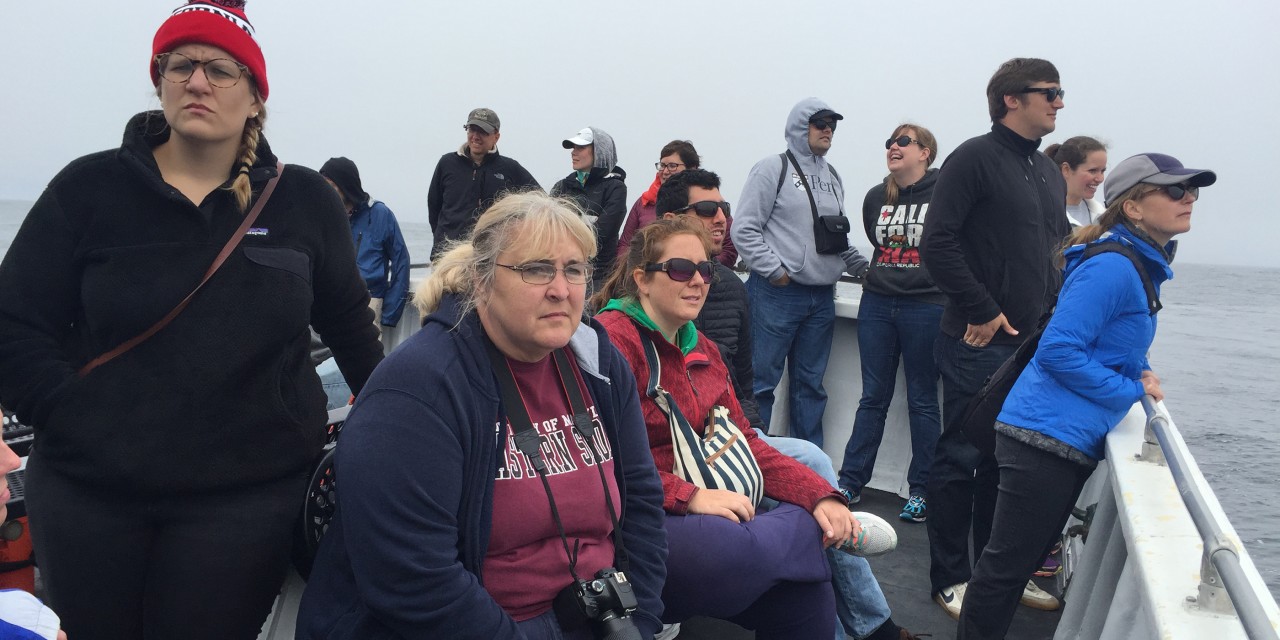At the Hopkins Marine Station of Stanford University in Pacific Grove, California, K-12 teachers are exploring the connections between the humanities and sciences through the work of John Steinbeck. The three-week National Endowment for the Humanities-funded institute for school teachers established in 2007 explores Steinbeck as a social critic and ecologist. The dual focus of the institute reflects the backgrounds of the Institute’s leaders, an English professor, Karen Shillinglaw of San Jose State University and the National Steinbeck Center, and a biology professor, William Giddy of Stanford University. Participants from all over the country and from a variety of specialties and types of schools gather in Pacific Grove for lectures, seminars, and site visits, exploring connections between Steinbeck’s literature and scientific thought.


The schedule is divided in two. The first half explores Steinbeck’s fiction set in California, including The Long Valley, Of Mice and Men, The Grapes of Wrath, and East of Eden. The second half focuses attention on Steinbeck’s work on the Pacific and the natural world, putting Sea of Cortez and Cannery Row into conversation with works by other environmental thinkers and writers.
Steinbeck’s fiction and nonfiction express deeply connected “moral and ecological sensibilities” that extend beyond California and the Pacific, Shillinglaw and Giddy explain in a letter introducing their institute: “John Steinbeck was a social protest novelist, an ecological visionary and an incisive commentator on American values and ideals—one who spent most of his career exploring what ‘the common good’ really meant.”
While much of Steinbeck’s work focuses on California and the Pacific, it addresses issues of national concern—“the common good”—and is informed by his long standing friendship with Biologist Ed Ricketts, Shillinglaw and Giddy explain: “Steinbeck’s sense of place and history was enriched by a long-standing interest in science. His friendship with marine biologist Edward F. Ricketts from 1930-1948 had a deep and lasting impact on his work, evident in the book that was his personal favorite, Sea of Cortez.”
Being on the Monterey Peninsula enables participants to explore the land and environment in which Steinbeck formed his social and ecological vision. The program includes tours and site visits, including of Salinas and the agricultural fields of the Salinas Valley that inspired East of Eden.
Throughout, the Institute focuses on what the teachers can bring back to their schools. Directors and staff meet individually and in small groups with participants to discuss how to incorporate what they learn into their curricula. At the end of the program, participants contribute a lesson plan or other resource to the project website. For all participants, the payoff is clear and is helping to show the deep connections between the humanities and the sciences. Shillinglaw and Giddy’s view is that the “institute’s holistic approach to Steinbeck’s work will help bridge the divides between humanities and sciences, between literary analysis and historical contexts, between historical and contemporary perspectives, and between fiction and nonfiction.”
